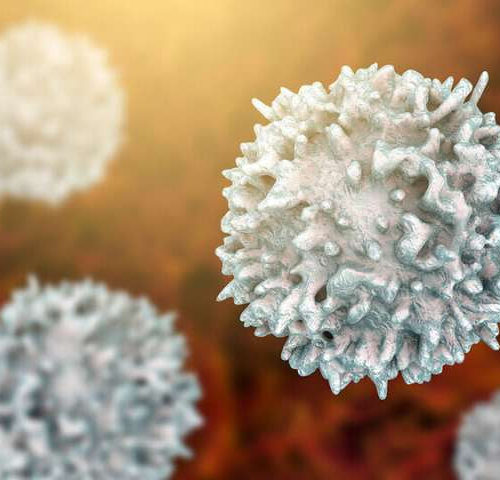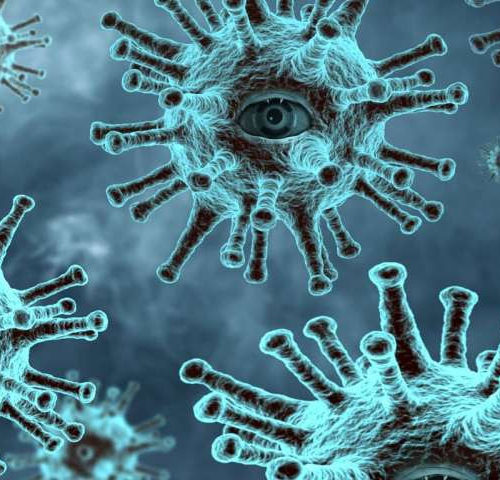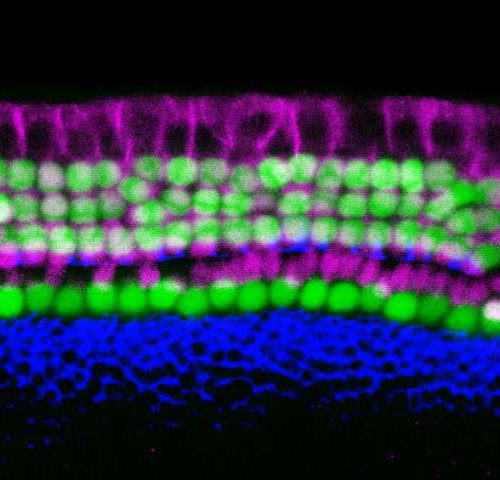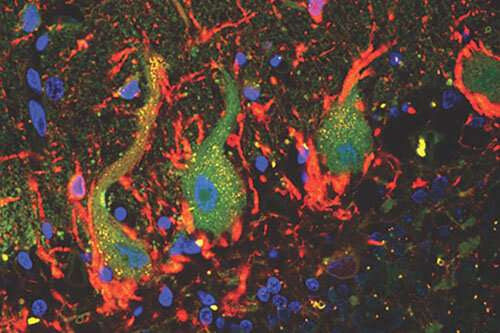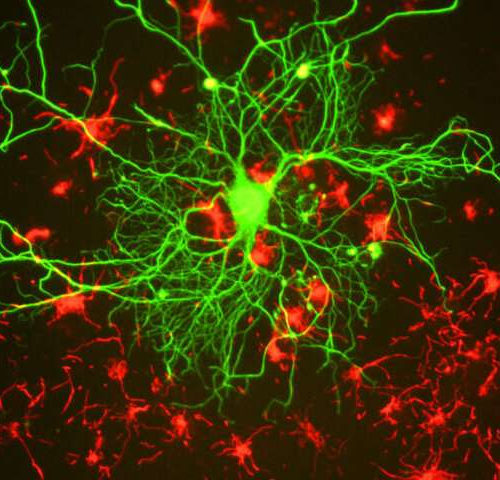So far there are no approved drugs for Non-Alcoholic Fatty Liver Disease UNIVERSITY OF COLORADO ANSCHUTZ MEDICAL CAMPUS AURORA, Colo. (July 8, 2020) – In an effort to combat a growing worldwide epidemic of Nonalcoholic Fatty Liver Disease (NAFLD), scientists have discovered a new target and a new therapy that has shown promising results in...
Tag: <span>potential drug</span>
Regenerating the body from within using biomaterials
by Terasaki Institute for Biomedical Innovation Two approaches for using biomaterials. In the more traditional approach (left), the biomaterial construct is mixed with cells and biomolecules outside of the body and then developed in an external bioreactor. The structure is then implanted into the body. In the more recently used, or “in situ” approach (right),...
Study spotlights potential culprit in relapses of multiple sclerosis
by Scott Schrage, University of Nebraska-Lincoln A rendering of B lymphocytes, the white blood cells responsible for producing antibodies to fight infections. Recent research led by Nebraska virologists has found that an overabundance of B lymphocytes infected with the Epstein-Barr virus contributed to the recurrence of multiple sclerosis-like symptoms in mice. Credit: Shutterstock A recent...
Insufficient sleep harms children’s mental health
University of Houston study: Poor sleep at night ‘spills over’ into children’s emotional lives UNIVERSITY OF HOUSTON POOR SLEEP HARMS CHILDREN’S MENTAL HEALTH AND EMOTIONAL STABILITY ACCORDING TO A NEW STUDY PUBLISHED BY UNIVERSITY OF HOUSTON PROFESSOR OF PSYCHOLOGY AND DIRECTOR OF THE SLEEP AND ANXIETY CENTER… CREDIT: UNIVERSITY OF HOUSTON In a new study...
40% of virus carriers in Italian town show no symptoms: study
More than 40 percent of people diagnosed with COVID-19 in one Italian town showed no signs of being ill, according to research published Tuesday indicating that asymptomatic carriers may be significant spreaders of the virus. The authors said their research showed how important mass testing and isolating carriers was in containing clusters of the virus....
Study shows asthma drug salbutamol’s potential as Alzheimer’s treatment
A new study reveals that the common asthma drug salbutamol may offer potential as a treatment for Alzheimer’s disease LANCASTER UNIVERSITY A new study reveals that the common asthma drug salbutamol may offer potential as a treatment for Alzheimer’s disease. Alzheimer’s disease is the most common form of dementia, affecting 47 million people worldwide and...
Scientists find a simpler way to make sensory hearing cells
by Cristy Lytal, University of Southern California Scientists from the USC Stem Cell laboratories of Neil Segil and Justin Ichida are whispering the secrets of a simpler way to generate the sensory cells of the inner ear. Their approach uses direct reprogramming to produce sensory cells known as “hair cells,” due to their hair-like protrusions...
Novel pathology could improve diagnosis and treatment of Huntington’s and other diseases
by University of Bristol Bristol scientists have discovered a novel pathology that occurs in several human neurodegenerative diseases, including Huntington’s disease. The article, published in Brain Pathology, describes how SAFB1 expression occurs in both spinocerebellar ataxias and Huntington’s disease and may be a common marker of these conditions, which have a similar genetic background. SAFB1...
Study hints at early sign of Alzheimer’s degeneration
by Maggie MacLellan, University of Western Ontario BrainsCAN researchers examined an area in the brain’s subcortical region called the basal forebrain that includes cholinergic neurons. These neurons are known to be severely damaged by Alzheimer’s disease. Credit: University of Western Ontario Researchers have moved one step closer to identifying targets for brain degeneration that occur...
New treatment for common form of muscular dystrophy shows promise in cells, animals
University of Alberta-led team develops synthetic molecule that stops production of toxic muscle-killing protein UNIVERSITY OF ALBERTA FACULTY OF MEDICINE & DENTISTRY UNIVERSITY OF ALBERTA MEDICAL GENETICIST TOSHIFUMA YOKOTA LED A RESEARCH TEAM THAT CREATED A POTENTIAL NEW TREATMENT FOR ONE OF THE MOST COMMON FORMS OF MUSCULAR DYSTROPHY. Researchers have designed a potential new...


